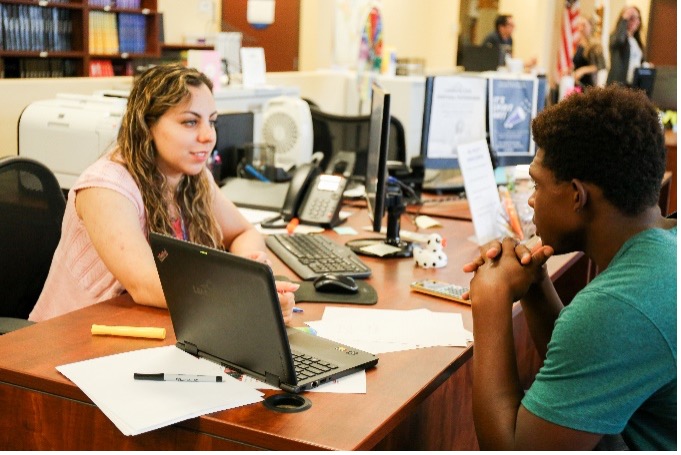
Learn4Life schools reported a “very low” suspension rate of 0.2% in the 2019-20 school year compared to a “medium” suspension rate of 2.5% reported by all California schools and much lower than other Dashboard Alternative School Status (DASS) schools serving high-risk students at 4.2%.
Suspensions can have a negative impact on student outcomes, both short- and long-term.
Studies show that students in schools with higher suspension rates were more likely to experience negative impacts on educational attainment and be arrested and incarcerated as adults. Suspensions are not only a learning issue, but also an equity issue. Students of color are more likely to be suspended and, in turn, suffer lost learning days and other negative consequences.
We see behavior problems as cries for help and handle them with a restorative justice discipline approach. This model fosters belonging over exclusion, social engagement over control and meaningful accountability over punishment. It is a program based on respect, responsibility, relationship-building and relationship-repairing. Our schools use mediation and agreement rather than punishment, and we allow the student to take responsibility for their actions, understand the consequences and have an opportunity to redeem themselves. These are important life skills that will benefit them throughout their adult life.
